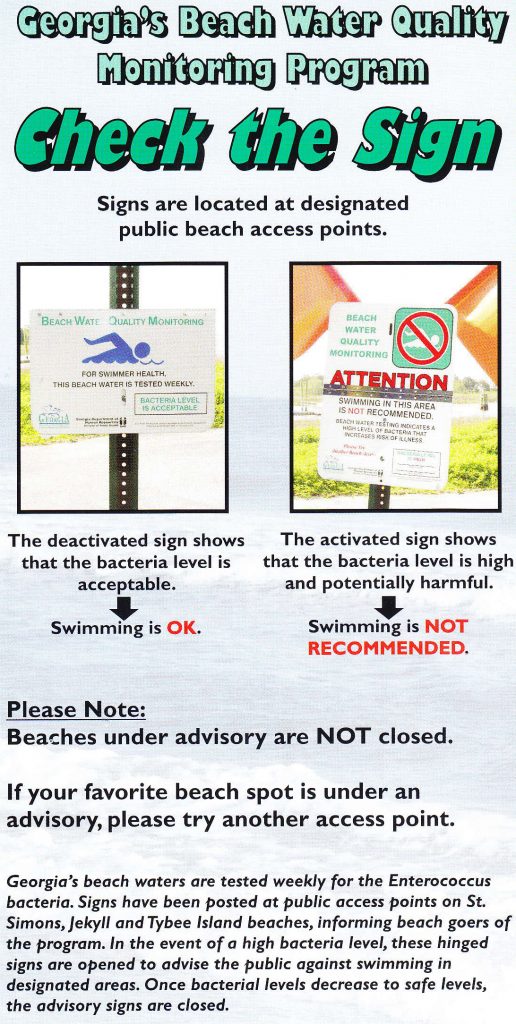Updated October 26, 2022
The Glynn County Health Department has lifted the beach water advisory for the South Beach at the lighthouse, which is from 9th Street to the pier on St. Simons Island
The advisory was issued on October 25, 2022, after routine water quality tests showed a high level of enterococci bacteria which increase the risk of gastrointestinal illness in swimmers.
Subsequent water samples taken showed that the bacteria levels had dropped below Environmental Protection Agency’s recommended limits. Therefore, the advisory has been lifted.
October 25, 2022
The Glynn County Health Department has issued a beach water advisory for South Beach at the lighthouse, which extends from 9th Street to the pier on St. Simons Island.
The Department of Natural Resources – Coastal Resources Division tests water samples at Georgia beaches throughout the year. The test screens for enterococcus (pronounced: en·ter·o·coc·cus) bacteria, which are found in humans and some wildlife. When a beach is under advisory, it means the level of bacteria found in the water is above the Environmental Protection Agency’s (EPA) recommended standards. Periodic advisories are not unusual, and sources of the bacteria could include animal waste, storm water runoff, or boating waste.
The advisory does NOT mean the beach is closed. Beach water advisories alert the public of a possible risk of illness associated with water contact in the advisory areas. The Health Department recommends you do not swim or wade in the water in the areas under advisory.
Fish and other seafood caught from these areas should be thoroughly washed with fresh water and thoroughly cooked before eating, as should fish or seafood caught from any waters. The area will be re tested this week, and the advisory will be lifted when the bacteria levels meet the EPA’s recommended standards.
For the most up-to-date information about beach water advisories along the Georgia coast, visit gahealthybeaches.org to access the Georgia Beach Map App. The app includes information about beach water-testing segments and the latest bacteria counts.






